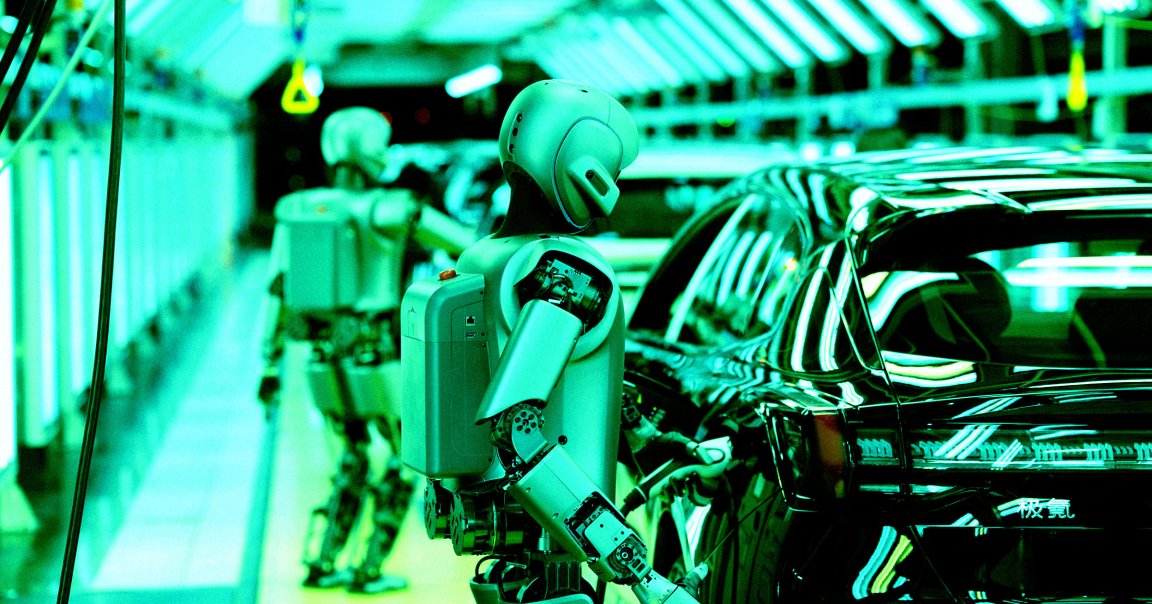
Western automotive and green energy executives who visit China are returning humbled — and even terrified.
As The Telegraph reports, the executives are warning that the country’s heavily automated manufacturing industry could quickly leave Western nations behind, especially when it comes to electric vehicles.
“We are in a global competition with China, and it’s not just EVs,” Ford CEO Jim Farley told The Verge last month. “And if we lose this, we do not have a future at Ford.”
Some companies are giving up on new initiatives altogether, with the founder of mining company Fortescue, Andrew Forrest, claiming that his recent trip to China led to him abandoning attempts to produce EV powertrains in-house.
“There are no people — everything is robotic,” he told The Telegraph.
Other executives recalled touring “dark factories” that don’t even need to keep the lights on, as most work is being done around the clock by robots.
“You get this sense of a change, where China’s competitiveness has gone from being about government subsidies and low wages to a tremendous number of highly skilled, educated engineers who are innovating like mad,” British energy supplier Octopus CEO Greg Jackson told the newspaper.
According to recent figures by the International Federation of Robotics, China has deployed orders of magnitude more industrial robots than Germany, the US, and the UK.
And it’s not just a desire to keep margins low through the automation of human labor.
“China has quite a notable demographic problem but its manufacturing is, generally, quite labor-intensive,” Bismarck Analysis analyst Rian Whitton told The Telegraph. “So in a pre-emptive fashion, they want to automate it as much as possible, not because they expect they’ll be able to get higher margins — that is usually the idea in the West — but to compensate for this population decline and to get a competitive advantage.”
Beyond EVs, China has also made a major push toward adopting artificial intelligence as part of a ten-year plan, with the aim of making it a “key growth engine for the country’s economic development.”
The country’s space program has also made massive strides, stoking fears of China beating the US back to the Moon.
The early warning signs of a Chinese industry-dominated future are already apparent, particularly when it comes to electric vehicles. While the United States has put protectionist measures in place to shield domestic producers and fend off steep competition, Chinese-made EVs have made a big impression in Europe.
“Robotics, if deployed well, can lift the productivity of your economy greatly,” Center for European Reform chief economist Sander Tordoir told The Telegraph. “And if China is extremely good at it, then we should try to catch up because, like China, a lot of Europe is aging.”
For now, the dam in the US is holding as bans on Chinese EVs remain in place.
“The competitive reality is that the Chinese are the 700-pound gorilla in the EV industry,” Farley told The Verge last month.
The Ford CEO admitted he’s already gotten a personal taste of what’s out there.
“I don’t like talking about the competition so much, but I drive the Xiaomi,” Farley added. “We flew one from Shanghai to Chicago, and I’ve been driving it for six months now, and I don’t want to give it up.”
More on China: China Is Suddenly Deploying AI Everywhere